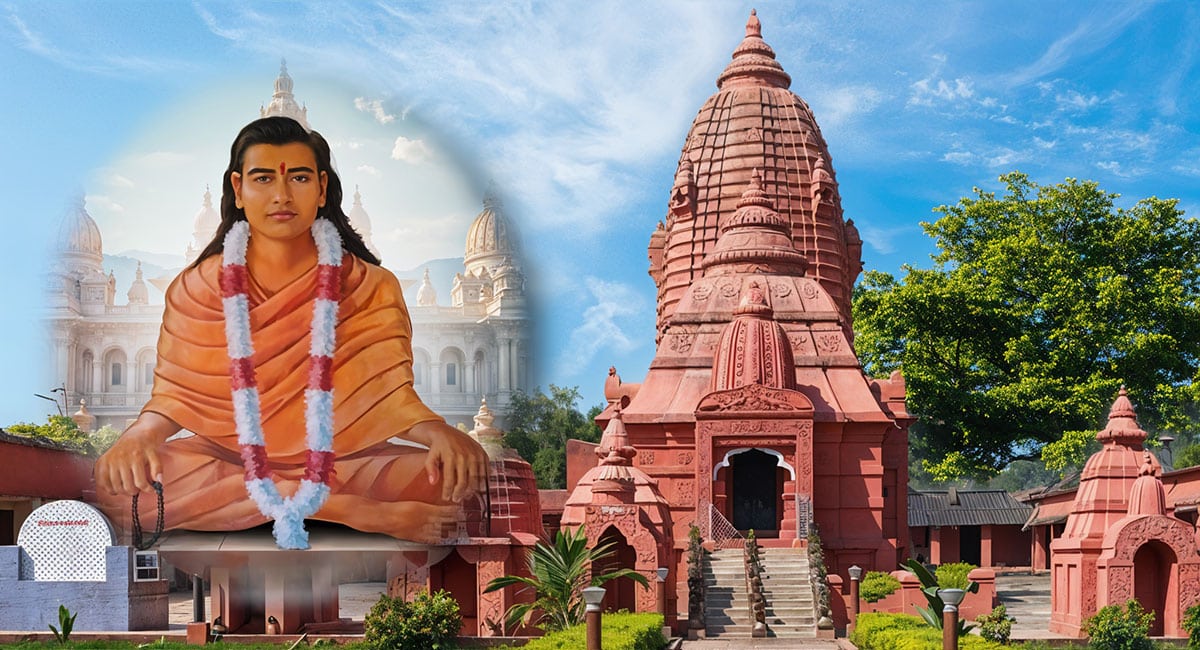Bhima Bhoi Jayanti of occasion
India is steeped in spiritual richness, and saints, reformers, and poets have left indelible marks on its cultural fabric. Among the many luminous figures, Bhima Bhoi stands tall—a saint, a poet, and a reformer whose voice continues to resonate with messages of compassion, equality, and inner truth. Every year, Bhima Bhoi Jayanti is celebrated with deep reverence, especially in Odisha and its neighboring regions, to commemorate his birth and shared transformative wisdom.
This annual celebration is not just a memorial of the past—it is a living homage to a soul who dared to dream of a just world. It reignites the eternal flame of his philosophy rooted in love, oneness, and spiritual liberation, which remain profoundly relevant today.
Who Was Bhima Bhoi?
Bhima Bhoi was born in Madhupur in Rairakhol in 1850. He hailed from the Kandha tribe, an indigenous community that faced extreme marginalization in colonial and feudal Indian society. Despite being born into poverty, suffering from visual impairment, and facing social exclusion, Bhima Bhoi emerged as a mystic poet whose words transcended barriers.
He became a devoted follower of Mahima Dharma, a spiritual movement that denounced ritualistic orthodoxy and caste-based discrimination. Bhima Bhoi’s genius lay in translating the profound essence of this faith into poetic verses that ordinary people could understand. Through his moving poetry, he emphasized non-violence, truth, humility, and devotion to Alekh, the formless Supreme Being.
The Core of Mahima Dharma
At the heart of Bhima Bhoi’s teachings lies Mahima Dharma, founded by Mahima Swami. This monotheistic and reformist movement rejected idol worship, casteism, and religious formalism. It advocated for an egalitarian society based on spiritual purity, devotion, and compassion. The supreme deity, Alekh, symbolizes a transcendental, formless divinity accessible to all, regardless of caste or status.
Bhima Bhoi, with his poetic brilliance, became the foremost torchbearer of this Dharma. His verses were emotional, powerful, and simple, capturing the inner yearnings of human souls. Among his most quoted lines is:
“Mo jeevana pachhe narke padithau,
Jagata uddhara heu.”
(“Let my life be doomed to hell if necessary,
But let the world be saved.”)
These words reflect selfless compassion—a call for universal salvation over personal liberation. This spirit continues to inspire thousands who celebrate Bhima Bhoi Jayanti.
Celebration of Bhima Bhoi Jayanti
When is it Celebrated?
Bhima Bhoi Jayanti is observed every year on the twelfth day of the bright fortnight (Shukla Dwadashi) in Bhadraba (August–September), per the Odia lunar calendar. The date varies each year based on lunar phases, but the spirit of celebration remains unwavering.
Rituals and Cultural Observances
People mark the Jayanti with cultural gatherings, prayer meetings, seminars, and devotional recitations held in temples and Mahima Dharma centers across Odisha, particularly in Sambalpur, Bolangir, Boudh, and Khaliapali. The day sees a beautiful amalgamation of spiritual reflection and cultural celebration.
Key Highlights of the Celebrations Include:
- Reciting poems by Bhima Bhoi, particularly those included in his well-known collections, such as the Adarsha Gita, Brahma Nirupana, and Stuti Chintamani. Frequently, these sessions are intensely meditative and emotional.
- There are seminars and symposiums on Mahima Dharma, where scholars discuss Bhima Bhoi’s contribution to literature, society, and spirituality.
Anna Daan (community feasts) reflect Bhima Bhoi’s teachings on service and equality. At these feasts, people of all castes and backgrounds share meals. - Folk performances, including Odia songs and dances inspired by Bhima Bhoi’s life and verses, add a colorful vibrancy to the solemn spirituality of the day.
Legacy Through Literature
Bhima Bhoi’s poetic brilliance was both spiritual and revolutionary. Writing in Odia and Kosali, his verses conveyed profound mystical experiences in accessible language. His writings are spiritual reflections and social commentaries, giving voice to the downtrodden.
Some of his most impactful works include:
- Stuti Chintamani – A sacred collection of hymns that honor Alekh and convey profound yearning, surrender, and spiritual insight is known as Stuti Chintamani.
- Brahma Nirupana – This philosophical treatise explores the nature of the formless deity and addresses ethical and metaphysical issues.
- Adarsha Gita – The Adarsha Gita is a lyrical manual for leading a morally upright and spiritually aware life founded on compassion, truth, and simplicity.
Scholars, social reformers, and devotees all still study and honor these works.
Spiritual Destinations to Visit
For those seeking a deeper connection with Bhima Bhoi’s teachings, visiting places associated with his life offers a meaningful pilgrimage:
- Khaliapali (Bolangir District) – The place where Bhima Bhoi lived a large portion of his life and penned his most well-known works is Khaliapali (Bolangir district). For his devotees, it is still a hallowed location.
- Joranda Monastery – Joranda Monastery in Dhenkanal serves as the spiritual center of Mahima Dharma, where followers perform Alekh-related rites and prayers in their original form.
- Boudh and Sambalpur – Regions where Bhima Bhoi’s legacy is still alive in local customs, poetry gatherings, and temple rituals.
These sites come alive with spiritual fervor during Bhima Bhoi Jayanti, offering visitors an immersive experience of devotion and community spirit.
Living the Message
Bhima Bhoi Jayanti is not just an occasion but a call to conscience. It celebrates love over hate, simplicity over excess, and inner truth over external form. Whether you’re a devotee, a scholar, or a curious soul, Bhima Bhoi’s life and works hold timeless relevance. As we observe Bhima Bhoi Jayanti, may we remember his words, live his message, and strive to build a world where compassion and truth reign supreme.


